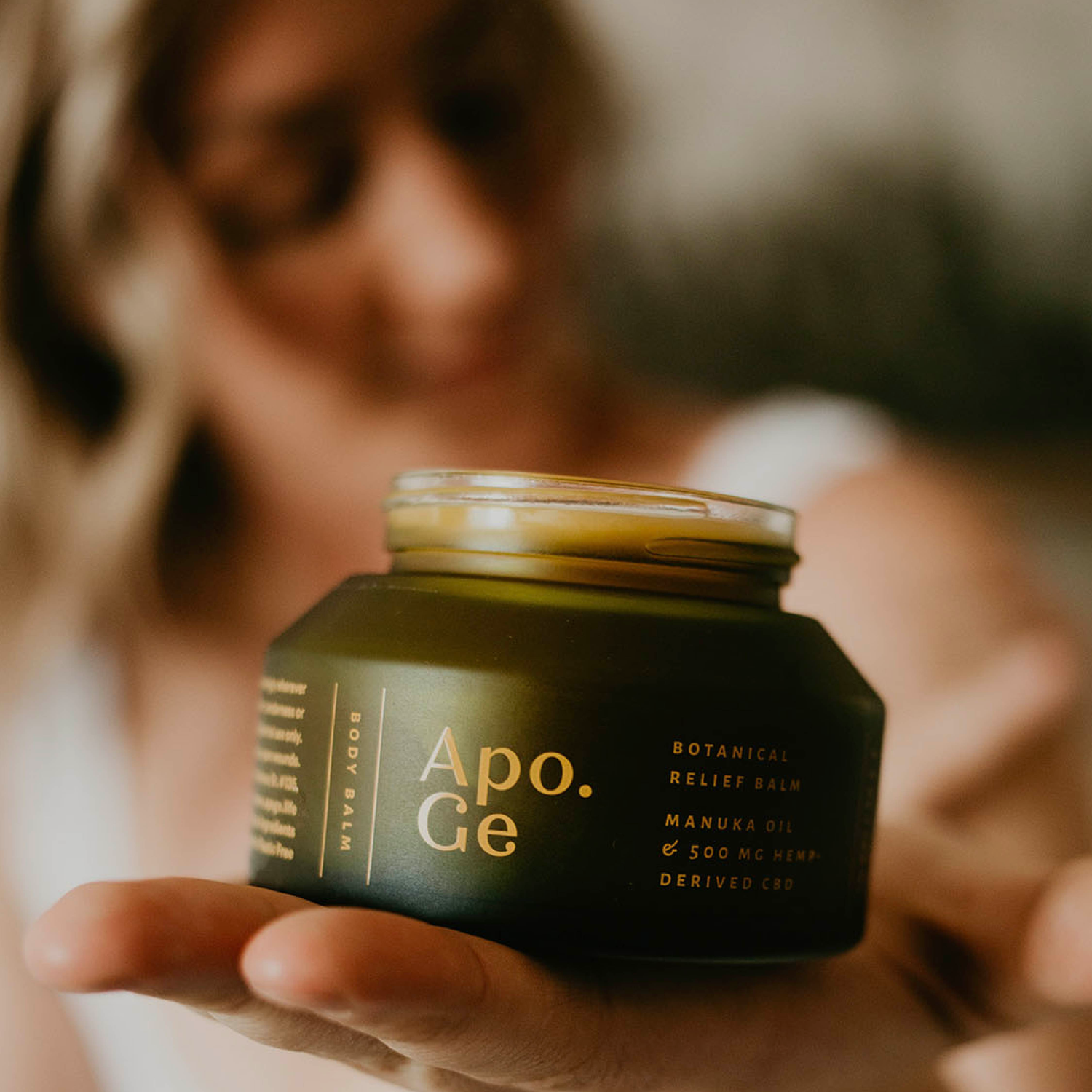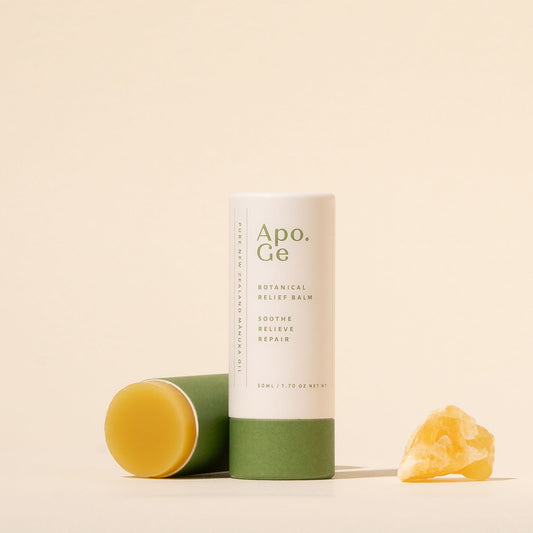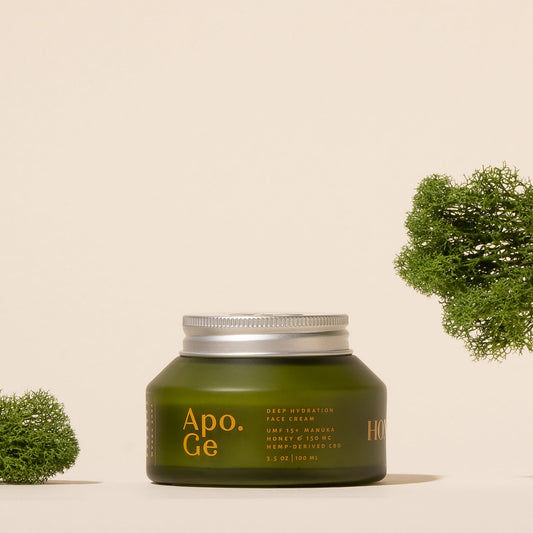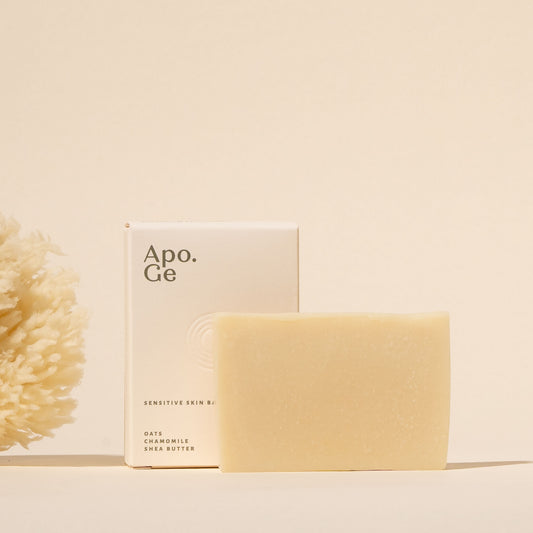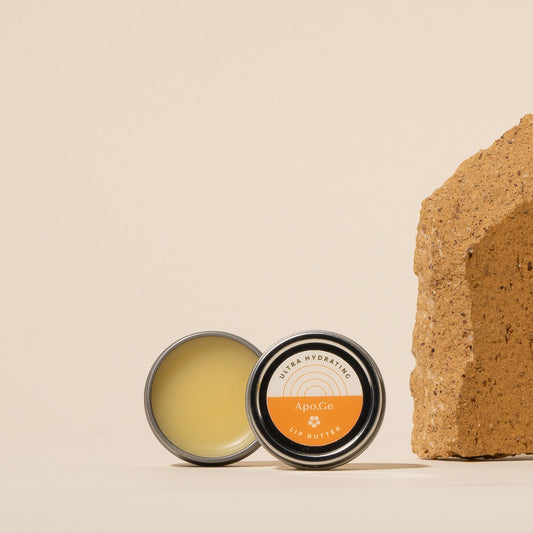In an industry where there are no set definitions for “clean” or “green”, we hold ourselves to a high standard of transparency, safety and sustainability. We believe in using only the safest and most effective ingredients that nature has to offer when treating your skin. We pass on formulating with petroleum-derived or synthetic ingredients and avoid using natural ingredients threatened by unsustainable harvesting practices.
Every ingredient within our products is thoroughly vetted to ensure they are not linked to any health or environmental issues. That means no ingredients associated with carcinogenic properties, higher levels of irritation, ecotoxicity or are not readily biodegradable. We’ve compiled this list of ingredients and the reasons why they will never find a home in your Apo.Ge routine.
Alcohol
Dries out the skin, disrupts the skin's natural pH balance, and cause irritation.
Benzene
A known carcinogen that can cause cancer and other serious health issues.
Ethanolamines (DEA, MEA, TEA)
Causes skin irritation, allergic reactions, and potentially harmful effects on the liver and kidneys.
EDTA (ethylenediaminetetraacetic acid)
Causes skin irritation, disrupts the skin's natural pH balance, and potentially harms aquatic life when washed down the drain.
Formaldehyde releasers and donors
A known carcinogen that can cause cancer, skin irritation, and other serious health issues.
Glycols - propylene glycol, polyethylene glycols (PEG’s)
Cause skin irritation, allergic reactions, and potentially harmful effects on the liver and kidneys.
Harsh synthetic surfactants
Strips your skin of its natural oils, disrupt the skin's natural pH balance, and cause irritation and dryness.
Hydroquinone
Causes skin irritation, increases sensitivity to the sun, and potentially leads to ochronosis, a skin condition characterized by blue-black pigmentation.
Imidazolidinyl Urea and Diazolidinyl Urea
Releases formaldehyde, which is a known carcinogen that can cause skin irritation, allergies, and other serious health issues.
Methyl, Propyl, Butyl and Ethyl Parabens
Research on parabens is conflicting and polarizing, but has not convinced us of harmful effects when typically used in cosmetics. Still, we choose to use other preservatives within our formulas.
Methylisothiazolinone and methylchloroisothiazolinone
Among the most common irritants, sensitizers, and causes of contact skin allergies.
Microbeads
Harmful to the environment and can potentially cause skin irritation and inflammation.
Microplastics
Harmful to the environment and marine life when they enter waterways and oceans.
Mineral oil
Derived from petroleum by-products.
Parfum/synthetic fragrances
Can cause skin irritation and allergies.
Paraffin wax
Clogs pores, prevents the skin from breathing, and potentially leads to skin irritation and acne.
Polyethylene glycol (PEG compounds)
Can potentially be contaminated with harmful impurities and can cause skin irritation and allergic reactions.
Petrolatum, petroleum jelly
Clogs pores, disrupts the skin's natural oil balance, and potentially causes skin irritation and acne.
Phthalates
Endocrine disruptors that can potentially lead to long-term health issues and can cause skin irritation and allergies.
Polysorbates
Can potentially be contaminated with harmful impurities and can cause skin irritation and allergic reactions.
PVP/VA Copolymer
Can potentially cause skin irritation and allergic reactions, especially in those with sensitive skin.
Silicones
Can trap bacteria and debris in the pores, potentially causing acne and other skin irritations.
Sulfates- Sodium Lauryl Sulfate (SLS), SLES
Strips the skin of its natural oils, potentially leading to dryness, irritation, and inflammation.
Synthetic colors
Can potentially cause skin irritation and allergic reactions, and some may even be linked to cancer and other serious health issues.
Talc
Can potentially be contaminated with asbestos, a known carcinogen, and can cause skin irritation and other health issues.
Triclosan and Triclocarban
An endocrine disruptor that can potentially lead to long-term health issues, and can also cause skin irritation and allergic reactions.
